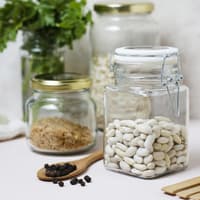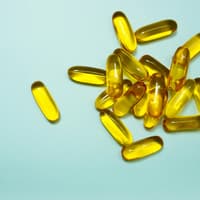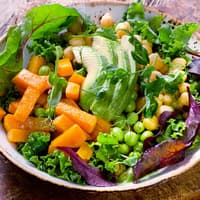
Nutrients form "natural sunglasses"
To support our eyesight, we should provide our eyes with the right vitamins. These include vitamin A (from animal products) and beta-carotene, the precursor of vitamin A. These two are the raw materials for the so-called visual purple. Without it, the rods - these nerve cells are responsible for light-dark vision - would not be able to work. Beta-carotenes are mainly found in fruit and vegetables with strong orange-red colors, but also in green foods.
Important nutrients and vitamins for the eyes
Lutein and zeaxanthin are particularly important nutrients for our eyes. These are plant substances that protect the macula, the area of sharpest vision, from damage caused by UV radiation. They are therefore a kind of "natural sunglasses" that preserve our eyesight for longer. Lutein and zeaxanthin are mainly found in bright green plants.
Omega-3 fatty acids are important components of the nerve cells in the retina. They are mainly found in sea fish such as mackerel, herring, salmon and tuna. If the eye is well supplied with them, this can protect us from a dangerous eye disease, age-related macular degeneration. Those who suffer from dry eyes can also benefit from omega-3 fatty acids.
Vitamin E is also good for the eyes, as it protects the sensitive visual cells from aggressive molecules. Good sources of vitamin E are vegetable oils (e.g. wheat germ, sunflower or olive oil), nuts and seeds. If you often have a one-sided diet, e.g. due to time constraints, you can also take dietary supplements that are specially tailored to the needs of the eyes (e.g. "Orthomol Vision", over-the-counter, pharmacy).
Colorful for the eyes: vitamins for clear vision
- Beta-carotene, the precursor of vitamin A, is mainly found in bright orange-red plants such as carrots, peppers, apricots and beet, but also in green foods such as lamb's lettuce, spinach and broccoli. Always eat these with oil, butter, yoghurt or cream - because our body can only utilize beta-carotenes with fat.
- Luteln and zeaxanthin, the "natural sunglasses", are mainly found in bright green plants, especially kale, broccoli and spinach.






